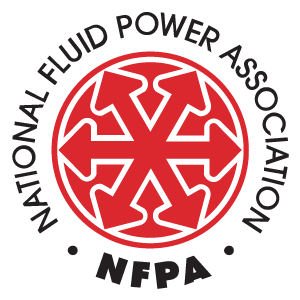By Eric Lanke
NFPA President/CEO
I recently attended the October 2018 Summit of the Center for Compact and Efficient Fluid Power (CCEFP) at the University of Minnesota. This is one of the meetings this fiscal year where the fluid power research projects supported by our new NFPA Research Supplement Program were presented.
In our efforts to increase the number of university students educated in fluid power, the NFPA Education and Technology Foundation has provided ten $10,000 research supplements to ten academic faculty members working on fluid power research at six universities. This helps to engage current and build the careers of future university faculty who are and will be in a position to teach fluid power to undergraduate engineers on their campuses. The research supplements provide travel support so that each faculty member and one of their graduate students can attend to present their research at designated industry conferences and research summits like the one hosted by the CCEFP.
One such faculty member is Professor Paul Michael at the Milwaukee School of Engineering, who presented on his project, “Polymer-Enhanced Fluid Effects on Mechanical Efficiency of Hydraulic Pumps,” at the CCEFP Summit. The goal here is to bridge the gap between fundamental behavior of polymer-enhanced fluids and the efficiency of fluid power systems. Working with funding provided by the CCEFP, Michael and his team (which includes Professor Ashlie Martini and several students at the University of California at Merced), have validated through simulation several important findings, including the fact that the size of the simulation domain does not affect viscosity results, that viscosity at high shear rates increases with polymer concentration, and that solutions with higher polymer concentrations exhibit more temporary viscosity loss. Moving forward, they will be focusing on:
- Examining viscosity and shear thinning at a range of temperatures and shear rates via molecular simulation.
- Evaluating fluid performance in dynamometer under steady state conditions.
- Increasing test stand data acquisition and control system bandwidth.
- Evaluating fluid performance in dynamometer under dynamic conditions.
A copy of Michael’s presentation slides can be accessed here.
Collectively, the research projects supported by NFPA Research Supplements represent more than $4.9 million in funding from a variety of organizations, including the U.S. Department of Energy, the National Science Foundation, and the Center for Compact and Efficient Fluid Power (CCEFP). They are an excellent sample of the growing body of fluid power research being funded by the federal government and other research organizations.
Like this post? Share it!
Recent Posts
Update to Regional Demand Estimates Report Now Available
The U.S. Fluid Power Regional Demand Estimates Report has been updated with 2023 estimates and is now available for download. This Excel-based report is prepared for NFPA by Oxford Economics and profiles the geographic distribution of fluid power products to end-use industries by state, including fluid power sales dollars, fluid power sales percentage, and number of…
Hear from an NCAT Student Engaged in NFPA Workforce Programs
We’re excited to share a new testimonial video from David Castro Lastor, a junior mechanical engineering student at North Carolina Agricultural and Technical State University and president of the university’s Fluid Power Club. In his video, David shares how participating in NFPA programs has shaped his academic and personal growth. Through his leadership in the…
New Episode of Fluid Power Forum: Advanced Modeling Techniques and Performance Comparisons of Electrohydraulic Systems
Today, our guest is Bruno Dupuis. Bruno is a Corporate Accounts Manager at Famic Technologies Inc., the company behind the development of Automation Studio™, a circuit design and simulation software for fluid power, electrical, robotics, process control and automation projects. He presented at NFPA’s Hydraulics Conference co-located at the 2024 iVT EXPO back in August.…




